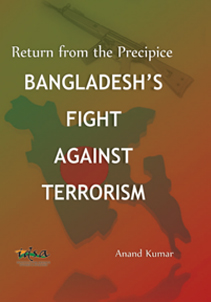The Terror Challenge In South Asia and Prospect of Regional Cooperation
- Publisher: Pentagon Security International
This book is an attempt to study the problem of terrorism in South Asia, which has often been perceived as its hub. The contributors to the volume belonging to South Asian region have provided valuable insights on the issue of terrorism and have also suggested measures to deal with the problem. They consider terrorism as a phenomenon that has been harmful to society, economy and polity of the South Asian nations. At the same time, they also point out that there should not be over-emphasis on the use of force. In fact, a calibrated use of force is likely to be more effective.
- ISBN 978-81-8274-599-5 ,
- Price: ?. 695/-
- E-copy available














